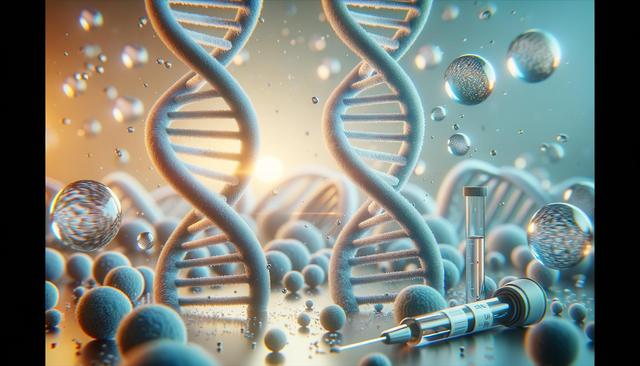The Science Behind DNA Testing
DNA testing relies on advanced biotechnology to analyze genetic material and uncover information about ancestry, health predispositions, and biological relationships. Each person’s DNA contains a unique combination of markers inherited from previous generations. These markers are analyzed and compared with extensive genetic databases to trace lineage and ethnic origins. As DNA testing becomes more accessible and sophisticated, individuals are gaining deeper insights into their family roots and genetic background. This scientific process uses saliva or cheek swab samples to extract and decode genetic data, which is then used to map out ancestral connections across different regions and time periods.
Understanding how the process works also helps clarify how accurate and reliable the results can be. Researchers use algorithms to match DNA sequences with those in global databases, identifying similarities that suggest common ancestry. These methods are continually refined to improve precision, especially as more people contribute their DNA to the databases. The technology behind DNA testing has also influenced other fields, such as forensic science and biological research, further expanding its impact.
Revealing Unexpected Ancestral Roots
One of the most remarkable outcomes of DNA testing is the discovery of unexpected ancestral origins. Many individuals begin the process expecting to confirm family stories passed down through generations, only to find surprising results. For example, someone who believed their heritage was mainly European might discover significant genetic markers from regions in Asia, Africa, or the Middle East. These revelations often reshape people’s understanding of their identity and family history.
DNA tests present results in percentages, showing how much of one’s DNA is linked to specific populations. These results can reveal:
- Ethnic backgrounds previously unknown
- Connections to historical migrations or events
- Shared DNA with distant relatives around the world
This aspect of DNA testing not only uncovers hidden heritage but also fosters a broader appreciation for human diversity and interconnectedness. It encourages users to explore cultural roots they may not have previously acknowledged while connecting with relatives through shared genetic profiles.
Personal Stories and Family Connections
Beyond ethnic origins, DNA testing often leads to profound personal discoveries. Many individuals have found biological relatives they never knew existed, including half-siblings, cousins, or even parents. These connections can be life-changing, offering emotional closure or opening new chapters in a person’s life. The emotional impact of these discoveries can be powerful, whether it confirms long-held suspicions or introduces entirely new narratives.
Some common scenarios include:
- Adopted individuals finding their birth families
- Families reconnecting after generations of separation
- Discovering shared ancestry with people from other countries or cultures
These stories demonstrate the human side of DNA testing and how it goes beyond science to touch lives in meaningful ways. While not every test yields dramatic results, the potential for discovery adds a deeply personal element to the experience. This has also influenced how some companies manage their DNA databases, integrating tools similar to dna management system platforms to help users make sense of their results.
Technological Integration and Data Management
As DNA testing grows in popularity, the need for effective data management systems becomes increasingly important. The volume of genetic data generated is immense, requiring sophisticated tools to organize, interpret, and store information securely. This is where systems resembling dna applicant tracking software come into play. Originally developed for managing job applications and recruiting workflows, applicant tracking software models are now being adapted to handle genetic profiles and match individuals to relatives or ethnic groups through automated algorithms.
These systems provide:
- Secure storage of sensitive genetic data
- Efficient matching of DNA profiles with global databases
- User-friendly dashboards that display ancestry maps and relative connections
Moreover, dna management system tools help ensure compliance with data privacy regulations, which is crucial given the sensitive nature of genetic information. These platforms are designed to provide transparency and control, allowing users to decide how their data is used and shared. As the technology continues to evolve, the integration of user-centric tools will play a significant role in making DNA testing more accessible and informative.
Ethical Considerations and Future Perspectives
While DNA testing offers exciting opportunities for discovery, it also raises important ethical questions. Issues such as data privacy, informed consent, and the potential misuse of genetic information are central to ongoing discussions in this field. Companies offering DNA testing must navigate these concerns carefully, often adopting policies that reflect growing public awareness and regulatory scrutiny.
Some ethical considerations include:
- How long data is stored and who has access to it
- The possibility of law enforcement accessing genetic databases
- Implications of discovering unknown relatives or family secrets
Looking forward, the future of DNA testing may include even more comprehensive analyses, such as predictions about health risks and personalized medicine. However, as the technology advances, so too must the frameworks that protect users. Responsible innovation, guided by transparent practices and user education, will be key to maintaining public trust and maximizing the benefits of DNA testing.
Conclusion: Embracing Discovery Through DNA
DNA testing has transformed how people understand their ancestry and personal history. It offers a unique blend of science and storytelling, revealing connections that were once hidden by time and circumstance. With the help of tools inspired by dna applicant tracking software and dna management system frameworks, users can navigate their results with clarity and confidence. As interest in genetic testing grows, so too does its potential to foster understanding, connection, and personal growth. Whether confirming family lore or uncovering new roots, DNA testing invites us all to explore where we come from in ways that are both enlightening and deeply human.




Leave a Reply